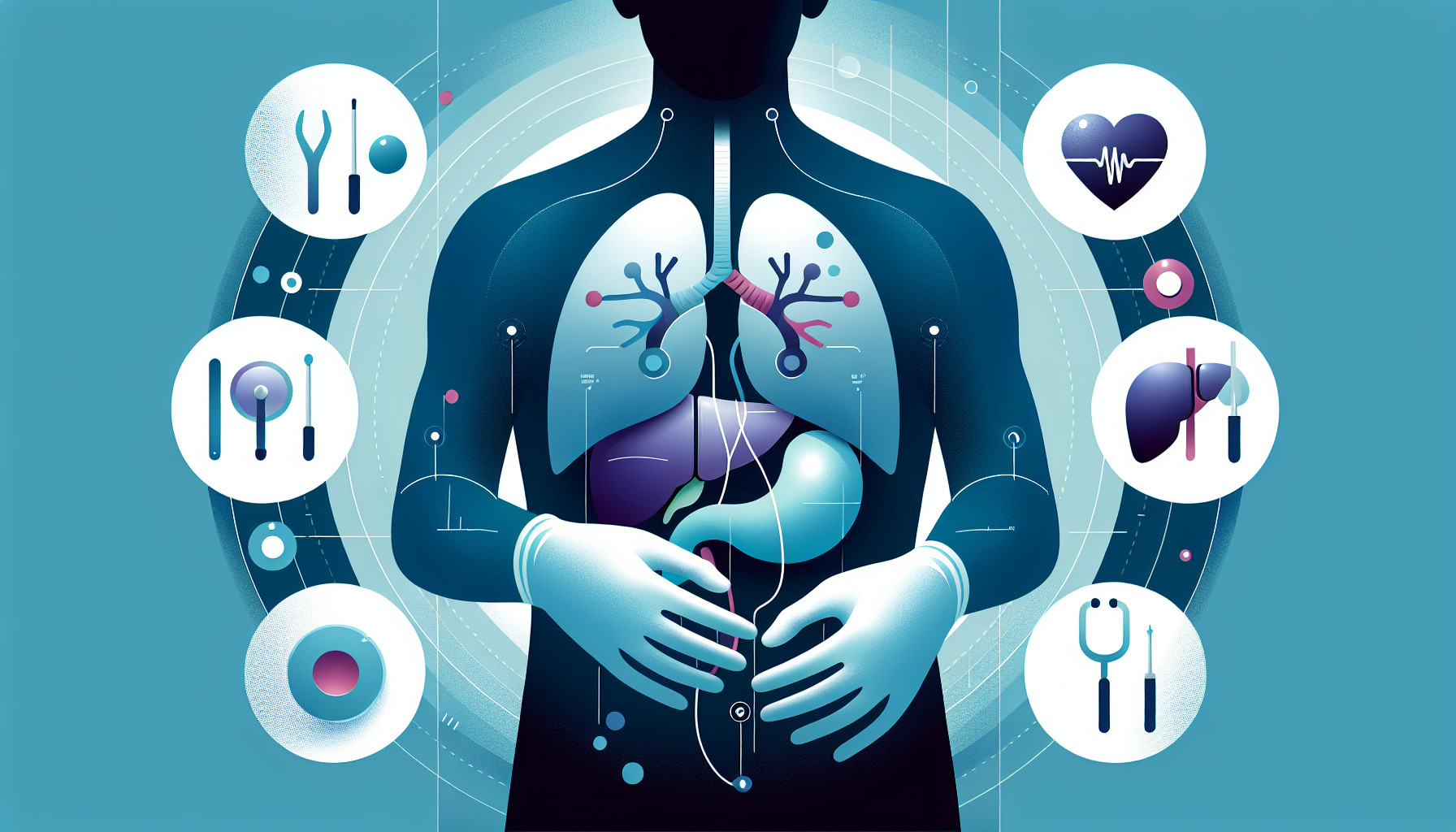Our Summary
This research paper examines how our bodies reject organ transplants at a molecular level. Researchers can get the best understanding of this by looking at the mRNA (a type of genetic material) in biopsy samples because the proteins that correspond to them are often not as easily detected and small non-coding RNAs are not specific enough. The study focuses primarily on kidney transplants, but the findings can be applied to heart, lung, or liver transplants as well.
The study found that there are different types of rejection: universal (all rejection), TCMR-selective (T cell-mediated rejection), or ABMR-selective (antibody-mediated rejection). Universal rejections are the strongest and ABMR-selective are the weakest.
They identified specific transcripts (a segment of DNA that is copied into RNA) associated with each type of rejection. For example, some universal transcripts are induced by a protein called IFNG, or are shared by effector T cells and NK cells. TCMR-selective transcripts are expressed in activated effector T cells and activated macrophages. ABMR-selective transcripts are expressed in NK cells and endothelial cells.
The researchers found that these associations between the type of rejection and specific transcripts are very consistent when using the same definitions, case mix, algorithm, and technology. However, the exact rankings may vary.
They also noted that previous studies on rejection-associated transcripts are more similar to universal and TCMR-selective transcripts, likely due to incomplete representation of ABMR. Lastly, they found that these rejection-associated transcripts are never completely specific to rejection, as they are shared with the body’s generic response to injury and innate immunity.
FAQs
- What are the molecular mechanisms involved in human organ transplant rejection?
- How are T cell-mediated and antibody-mediated rejection identified in organ transplant biopsies?
- Why are transcript associations highly reproducible between biopsy sets in the context of organ transplant rejection?
Doctor’s Tip
A doctor might tell a patient undergoing an organ transplant to closely follow their post-transplant medication regimen, attend all follow-up appointments, and report any signs of rejection (such as fever, swelling, or pain at the transplant site) immediately. It is also important for the patient to maintain a healthy lifestyle, including regular exercise and a balanced diet, to support the success of the transplant.
Suitable For
Patients who are typically recommended for organ transplant are those who have end-stage organ failure and have exhausted all other treatment options. This includes patients with conditions such as chronic kidney disease, heart failure, liver failure, and lung disease. Additionally, patients must meet certain criteria such as being in good overall health, having a strong support system, and being able to adhere to post-transplant medications and lifestyle changes. Patients who are considered for organ transplant are evaluated by a multidisciplinary team of healthcare professionals to determine if they are suitable candidates for the procedure.
Timeline
- Patient is diagnosed with end-stage organ failure and is evaluated by a transplant team for eligibility for organ transplant.
- Patient is placed on a waiting list for a suitable organ donor.
- Patient undergoes pre-transplant evaluations, including blood tests, imaging studies, and psychological assessments.
- Patient receives a call that a suitable organ donor has been found and prepares for surgery.
- Patient undergoes organ transplant surgery, which can last several hours.
- Patient is closely monitored in the intensive care unit post-surgery for any signs of complications or rejection.
- Patient is discharged from the hospital and begins a regimen of immunosuppressant medications to prevent rejection.
- Patient attends regular follow-up appointments with the transplant team to monitor organ function and adjust medications as needed.
- Patient adjusts to life with a new organ, including potential lifestyle changes and ongoing medical management.
- Patient may experience episodes of rejection, which require treatment and monitoring.
- Patient continues lifelong follow-up care to ensure the long-term success of the transplant.
What to Ask Your Doctor
- What are the risks and benefits of undergoing an organ transplant?
- How will the transplant process be managed, including pre-operative evaluations, surgery, and post-operative care?
- What is the expected recovery time and prognosis after the transplant surgery?
- What medications will I need to take after the transplant, and what are the potential side effects?
- How often will I need to follow up with you after the transplant surgery?
- What signs or symptoms should I watch out for that may indicate rejection or complications?
- How can I reduce my risk of rejection and improve the success of the transplant?
- Are there any lifestyle changes or restrictions I should be aware of after the transplant?
- What support resources are available for transplant recipients, such as support groups or counseling?
- What are the long-term implications of having an organ transplant, including potential risks of chronic rejection or other complications?
Reference
Authors: Halloran PF, Venner JM, Madill-Thomsen KS, Einecke G, Parkes MD, Hidalgo LG, Famulski KS. Journal: Am J Transplant. 2018 Apr;18(4):785-795. doi: 10.1111/ajt.14600. Epub 2017 Dec 23. PMID: 29178397
